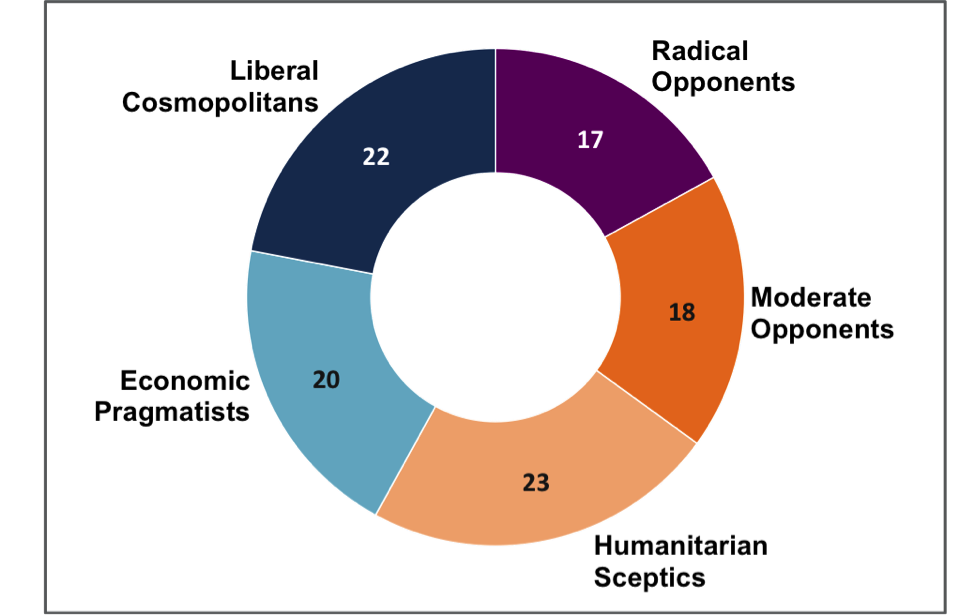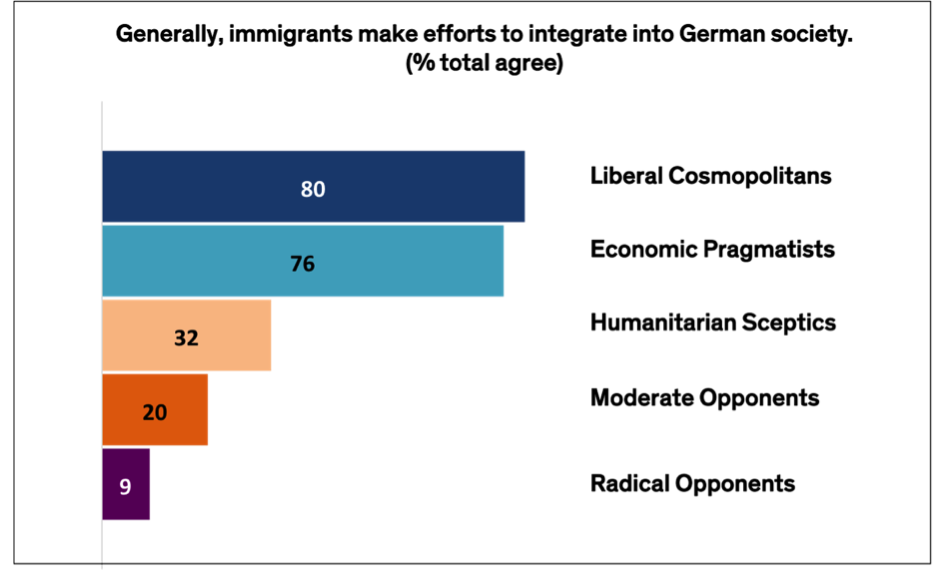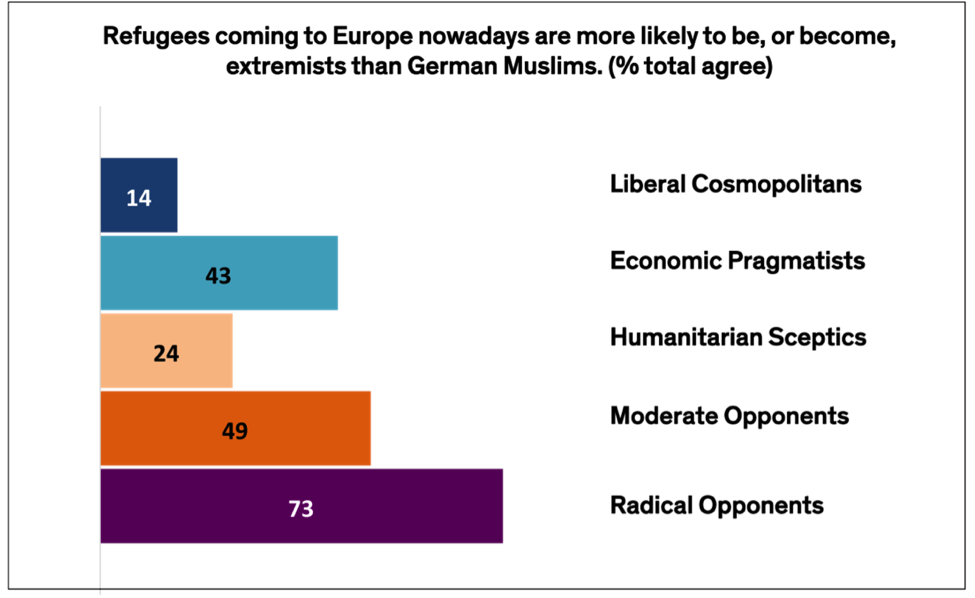Bridging the European ‘Conflicted Middle’ on Refugees
May 18, 2017
Understanding the ‘Conflicted Middle:’ European Public Opinion towards Refugees
The refugee crisis that confronted Europe and the West beginning in 2015 posed a complicated challenge—with humanitarian, political, social, and religious dimensions. Purpose hypothesized that the complexity of the issue means that many Europeans are feeling neither fully opposed, nor fully enthusiastic about hosting refugees—but are instead torn between competing emotions. As rising right wing parties in Germany, France, the UK and elsewhere capitalized on opposition to refugees, it became critical that humanitarian groups and civil society learn how to reassure an uneasy public in order to keep anti-immigrant voices from gaining control. To understand this issue with greater nuance, Purpose developed a study to segment public opinion in Germany and France according to attitudes towards immigrants and refugees.
Our findings revealed populations divided by wide gaps of disagreement. While most believe that the current moment has worrying levels of discord and conflict, where they see that conflict and who they attribute it to differs widely. In each country, a Liberal Cosmopolitan population believes that racist and discriminatory attitudes within the host country are the leading causes for concern. Meanwhile, an embittered and pessimistic group of Radical Opponents see immigrants and refugees as the source of problems. In between, groups belonging to a ‘conflicted middle’ take different approaches to wrestling with internal ambivalence. This conflicted population largely believes in a duty to help those who are fleeing war, and many think Europe has some blame for the roots of the crisis itself. Yet many simultaneously believe that refugees will bring a higher risk of extremism, hold different values, and hold concerns about Islam. The data showed how essential it is for governments and supportive organizations to know how to draw on this existing goodwill while also speaking to common concerns.



The release of our results has drawn interest from the United Nations High Commissioner on Refugees (UNHCR), philanthropic actors, and civil society groups in Germany, France, Netherlands, Italy and beyond. Through the end of 2017, there will be seminars, workshops, and communications trainings with these groups to assist them with the challenges of navigating different perspectives, displaying informed empathy, and providing critical information. Our team included the leadership of Social Change Initiative and Human Dignity Foundation, leading polling firms Ipsos and IFOP, well-regarded academics in political science and sociology—Mark Helbling and Jerome Fourquet, Managing Director Tim Dixon, Director of Research and Polling Stephen Hawkins, and Research Fellow Vincent Wolff.
Feature photo courtesy of Refugees Aid BCN IndieGoGo. Source: Anon Galactic News
for Equity & Evidence